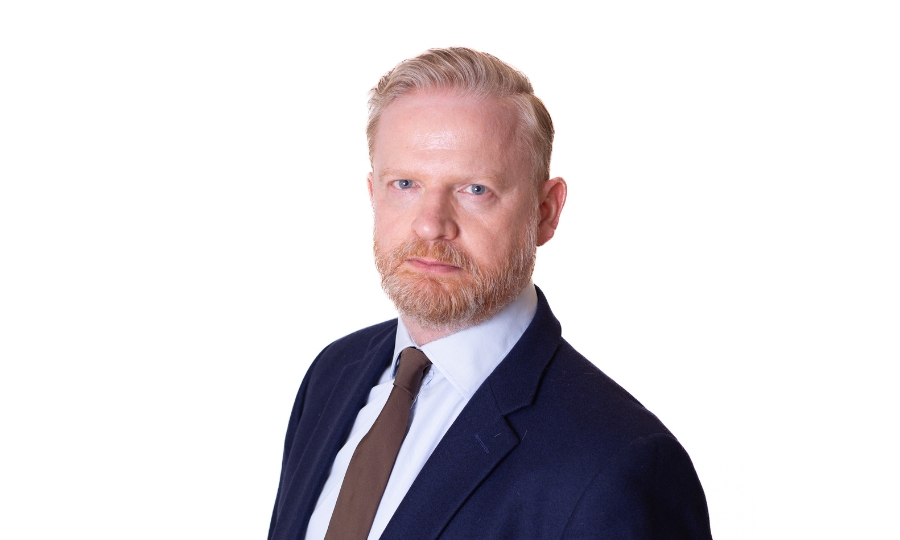Government toughens up stance on economic crime
The Economic Crime and Corporate Transparency Bill 2022, which is expected to become law in the near future sets out measures to strengthen financial crime prevention and enforcement in the UK.
It follows hot on the heels of earlier legislation targeting the identification and registration of overseas entities holding property in this jurisdiction, and it forms part of the UK government’s wider drive to tackle illicit finance and improve transparency over corporate entities.
We set out below the three most significant areas of change in the bill of which clients and their advisors should be aware.
Tightening corporate registration and verification requirements
The registration and verification process for corporate entities (chiefly, limited liability companies), administered and overseen by Companies House, has long been the subject of criticism by commentators and anti-corruption campaigners alike over its perceived failure to root out bogus companies set up as vehicles for laundering the proceeds of crime or otherwise furthering illegal conduct. The problem appears to be much more far reaching than the widely reported phenomenon of sweets shops with a dubious corporate ownership structure and filing history cropping up on popular London shopping streets. In 2020, the International Consortium of Investigative Journalists reported that many thousands of UK shell companies were being used in the course of allegedly criminal activities.
Thus, a reform of Companies House has been trailed for some time. Significantly, the bill aims to address concerns of systematic abuse by introducing heightened identification requirements across the board (both at the point of registration and for existing corporate entities), as well as creating new powers for the Registrar of Companies House to enquire into, and where appropriate reject, unsatisfactory information. Flagship reform proposals in the bill include:
– A new identity verification process covering both company directors and those deemed to be persons with significant control. Directors will be prohibited from performing their functions unless the process is followed.
– A new requirement that corporates submit a statement as to their lawful purpose and that this statement is reconfirmed on an annual basis.
– Prohibiting the use of certain business names (where historic experience suggests that such names may be associated with efforts to conceal unlawful activities).
– A heightened requirement on the use of appropriate addresses for registered offices (to tackle the existing practice of the same, anonymous P.O. boxes being used over again).
– The ability for the Registrar to check, remove or decline certain information, as well as to direct companies to rectify perceived shortcomings.
Corporate service providers should also take heed that the bill proposes the introduction of a new authorisation process for Companies Act purposes. While any attempts to tighten the UK’s corporate administration regime are certainly welcome, it is open for debate whether the bill, as currently drafted, goes far enough to enable the effective identification of corporates’ ultimate beneficial owners, in particular where complex and/or overseas ownership arrangements are in place. Further, although it is a positive sign of the government’s appetite for tackling the problem that many requirements in the bill will apply retrospectively, to cover existing registrations, it remains to be seen where the resources to implement all these new powers will come from. The question of how the Registrar’s foreseen “active gatekeeper” role will function in practice is particularly pertinent given that, in parallel, Companies House will also be in charge of the new Register of Overseas Entities.
Increasing the SFO’s powers to compel material and explanations
Perhaps getting less airtime than the Companies House reforms but just as significant (if not more so) is the proposal to expand the Serious Fraud Office’s (SFO) existing powers to compel individuals (including persons under investigation) and companies (including financial institutions and corporate employers, i.e. third parties that may hold relevant information and/or funds) to share information or documents in relation to a suspected criminal offence. Where required, such assistance may extend to relevant persons being required to attend a compelled interview with the SFO where they must answer all questions and provide truthful answers (with the risk of criminal repercussions if they fail to do so). In exchange, those who provide the information benefit from a prohibition on the SFO using such information as evidence in criminal proceedings against them (unless the information turns out to be materially false or misleading, or otherwise inconsistent with subsequent evidence).
Crucially, to date, the use of these powers (which arise under section 2 of the Criminal Justice Act 1987 and are colloquially known as “s2 powers”) has been restricted to instances where the SFO has already opened a formal investigation, i.e. where – under the relevant statutory test – its Director has had “reasonable grounds” to consider that “serious or complex fraud” has been committed. In practice, this limitation has meant that the SFO has had to fall back on traditional, non-s2 investigative tools (such as those available to the police and other law enforcement bodies) to conduct its preliminary enquiries, with a view to establishing whether there are reasonable ground to suspect wrongdoing, before s2 can be triggered. The only current exception to the general restriction on the SFO’s use of its s2 powers, which reflects their draconian nature, is where using those powers at the pre-investigation stage would enable the SFO to determine whether to open a formal investigation into allegations specifically related to offences with an international element under the Bribery Act 2010. This is all set to change if the proposed bill provisions are enacted into law.
The bill foreshadows a dramatic shift to the landscape of SFO investigations, by proposing to remove the above restriction and empower the SFO to use s2 at the preliminary stage of all its enquiries (i.e. not just those relating to international bribery allegations). Being allowed to compel individuals and companies to provide it with documents and explanations even before it has established that there are reasonable grounds to suspect domestic fraud or bribery offences would constitute a sea change for the SFO, and it would place its investigative powers on a considerably broader remit at a much earlier stage. The proposal has been introduced with little fanfare and it remains to be seen whether the SFO will be able to make effective use of it, if enacted.
If enacted, these proposals will be of particular significance for the following parties:
– Those on the fringes of the SFO’s enquiries: While the SFO does not typically invoke s2 to compel information from persons it squarely considers to be suspects from the outset, we have seen increased use of these powers vis-à-vis witnesses as well as persons of interest whose status the SFO is yet to determine. Thus, the proposal is significant for those on the fringes of domestic misconduct allegations as s2 interviewees have no choice but to answer the SFO’s questions.
– Corporates considering self-reporting concerns to the SFO: It is well established that the SFO expects corporates to adopt a “genuinely proactive approach” and report credible suspicions of criminal wrongdoing to the SFO at the earliest opportunity once sufficient internal enquiries have been undertaken to establish those concerns. The proposed amendment would undoubtedly mean that companies considering whistleblowing reports of domestic fraud, false accounting etc could anticipate the SFO becoming aware of those allegations at an earlier stage and commencing its own investigations sooner than it otherwise would have.
– Suspects in smaller, domestic SFO investigations: The SFO has been long criticised for concentrating on complex, international “headline” cases which it has then struggled to translate into convictions. Expanding its s2 powers may enable the SFO to successfully target less complex allegations of fraud and other financial crime inside the UK (as long as these cases still fall within the SFO’s remit of investigating serious and complex financial wrongdoing); with such cases potentially being considered lower hanging fruit (in particular, in light of the high number of public allegations concerning the misuse of Covid-19 loans, financial assistance and procurement processes).
New powers to freeze and confiscate cryptoassets
Last but decidedly not least, the bill responds to the increased use of cryptocurrencies to receive and launder the proceeds of criminal conduct (often with an overseas element) by broadening the circumstances in which cryptoassets may be the subject of criminal and/or civil asset recovery efforts. In particular, the bill proposes to amend the relevant sections of the Proceeds of Crime Act 2002 (POCA) as follows:
– Criminal confiscation: Confiscation orders are routinely applied for, and issued by the criminal courts, following successful prosecutions. Confiscation orders are aimed at depriving convicted defendants of the benefit of their crime and affect the defendant in person (as opposed to particular assets or funds). POCA already allows for the seizure and detention of specific assets ahead of confiscation proceedings, so that those assets can be preserved and then used by the authorities to satisfy any subsequent confiscation order. The bill introduces cryptoassets into the seizure framework by proposing to amend POCA as follows:
– Introducing explicit powers for authorities to create and use law enforcement-controlled cryptocurrency wallets, alongside specific provisions to address the seizure and detention of intangible property.
– Granting the criminal courts new powers to enforce confiscation orders through the sale of seized cryptoassets (analogous to existing powers to liquidate bank account balances).
– Enabling the destruction of cryptoassets in certain, exceptional circumstances.
– Significantly, if certain proposed statutory criteria are met, law enforcement agencies will be able to use seizure powers at a much earlier stage of their investigation than they currently do. This would enable them to seize a suspect’s assets even before the suspect is arrested (unlike at present). The proposed amendment would cover all tangible and intangible properties, and not just cryptoassets.
– Civil recovery regime: Part 5 of POCA currently empowers law enforcement agencies to initiate proceedings in the High Court, in respect of property obtained through unlawful conduct, which can result in a final civil recovery order (CRO) being granted. In addition, where monies held in a UK bank account are suspected of being either the proceeds of crime or intended to be used to further illegal activities, authorities are already able to apply under Part 5 to the low-level criminal courts for a temporary account freezing order (AFO) which is often followed by permanent forfeiture of the frozen sums. Such applications are independent of any criminal proceedings (or indeed charges), they do not require a pre-existing finding of guilt and both CROs and AFOs are granted on a lower (civil) burden of proof. The bill proposes to introduce a new subset of crypto-specific “forfeiture powers” under Part 5, to complement the existing POCA toolkit. If enacted, these new provisions will largely mirror the AFO process.
While in practice, both authorities and courts have already made increasing use of various civil and criminal legal provisions (including those under POCA) to target cryptoassets linked to illegal activities, much of this has come down to imaginative and ad-hoc use of existing laws. With the bill, the government attempts to address the current legislation’s limited ability to play catch-up with the increasing relevance of cryptoassets in law enforcement. It remains to be seen how effective the proposed measures will prove to be in the face of the crypto sphere’s ever-progressing technical evolution.
What next?
The bill is tabled to receive its second reading in the House of Commons on 13 October, in line with the government’s continued push to keep economic crime on top of its agenda. We will provide a further update on any significant amendments as the bill progresses and once it has received Royal Assent.





